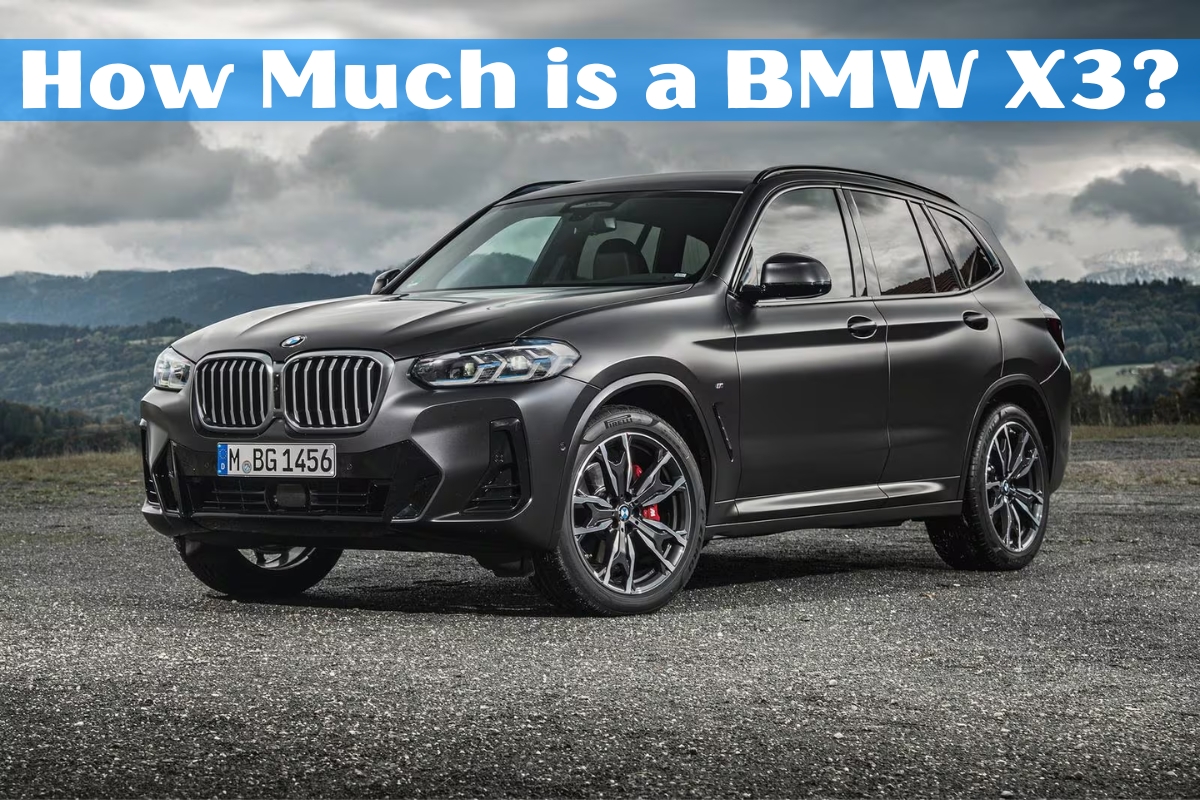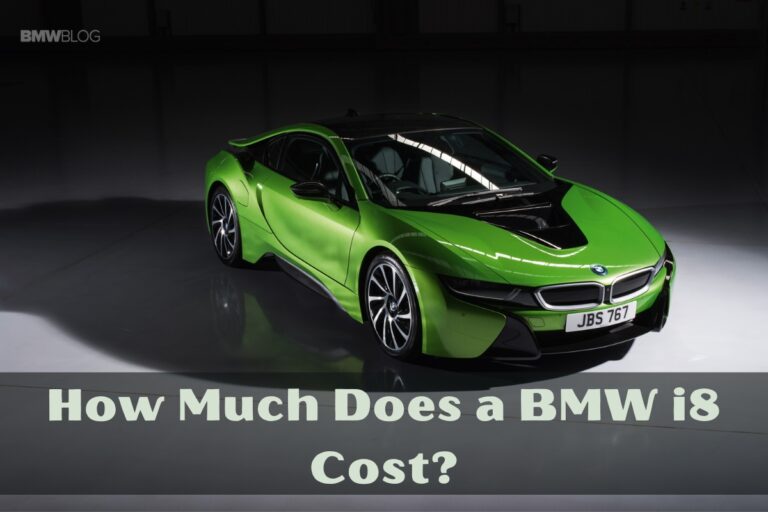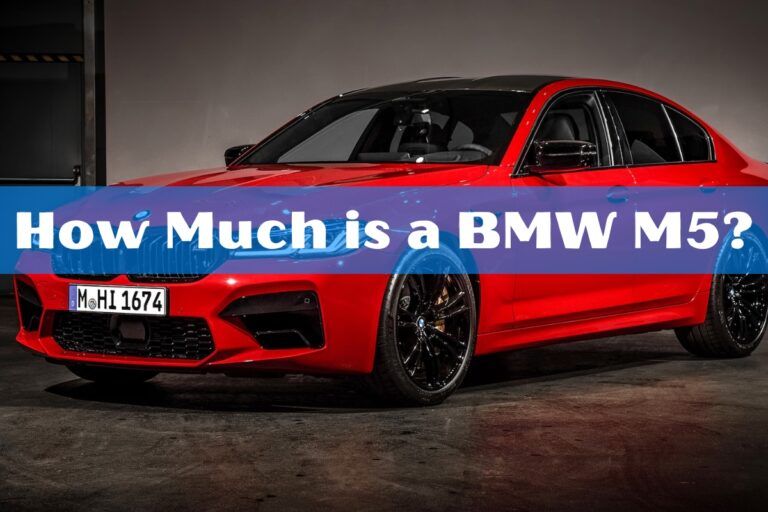How Much is a BMW X3? A Comprehensive Guide to Pricing

In simple terms, the 2024 BMW X3 has a starting price around $46,900 for the base sDrive30i model and goes up to $61,900 for the high-performance M40i trim. However, the actual cost can vary significantly depending on factors such as location, optional packages, and dealership pricing. In this comprehensive guide, we’ll dive deep into the pricing details of the BMW X3, explore various trim levels, additional options, financing choices, and compare it with competitors in the luxury SUV segment.
BMW X3 Trim Levels and Base Prices
The 2024 BMW X3 is available in three main trim levels, each offering a distinct combination of performance, features, and pricing:
1. sDrive30i (Rear-Wheel Drive)
The sDrive30i is the base model of the X3 lineup, with a starting MSRP of $46,900. It comes equipped with a 2.0-liter turbocharged four-cylinder engine that delivers 248 horsepower and 258 lb-ft of torque. This rear-wheel-drive variant strikes a balance between performance and affordability, making it an appealing choice for those seeking a luxurious and practical SUV without breaking the bank.
2. xDrive30i (All-Wheel Drive)
For those who prioritize all-weather capability and enhanced traction, the xDrive30i is the all-wheel-drive version of the base model. With a starting MSRP of $48,900, it shares the same 2.0-liter turbocharged four-cylinder engine as the sDrive30i but adds the xDrive all-wheel-drive system for improved handling and stability on various road conditions.
3. M40i (Performance Variant)
The M40i is the performance-oriented trim level of the X3 lineup, designed for driving enthusiasts who crave a more exhilarating experience behind the wheel. With a starting MSRP of $61,900, the M40i is powered by a potent 3.0-liter turbocharged six-cylinder engine that generates 382 horsepower and 369 lb-ft of torque. This variant also includes performance-enhancing features like an M Sport exhaust system, M Sport brakes, and an M Sport differential.
It’s important to note that these base prices are subject to change and may vary depending on your location and the specific dealership you visit. Additionally, various optional packages and individual options can significantly impact the final price of your BMW X3.
Additional Options and Packages
BMW offers a wide range of optional packages and individual options for the X3, allowing you to customize the vehicle to your specific preferences and needs. Some of the popular options and packages include:
Premium Packages
- Convenience Package: Includes features like a panoramic moonroof, heated front seats, and a heads-up display.
- Technology Package: Adds advanced driver-assistance systems, such as lane departure warning, blind-spot monitoring, and a parking assistance system.
- Luxury Package: Enhances the interior with upgraded upholstery, ambient lighting, and a premium sound system.
Exterior and Interior Customization
- Exterior color choices: BMW offers a variety of paint colors, including metallic and premium options, which can add to the overall cost.
- Interior upholstery and trim options: You can choose from different leather upholstery colors, wood or aluminum trim accents, and more.
- Wheel upgrades: Opt for larger alloy wheels or performance tires for an enhanced look and improved handling.
Performance Upgrades
- M Sport Package: Adds sporty styling elements, an M Sport suspension, and other performance-oriented features.
- Adaptive M Suspension: Provides a more dynamic and engaging driving experience with adjustable damping settings.
- Braking System Upgrades: Choose from larger or high-performance brakes for improved stopping power.
The cost of these options and packages can vary widely, ranging from a few hundred dollars to several thousand dollars, depending on the specific selections you make.
Regional and Market Differences
It’s worth noting that the pricing of the BMW X3 can vary significantly across different regions and countries due to factors such as taxes, import duties, and market conditions. For example, the X3 may have a higher base price in certain European countries compared to the United States due to different tax structures and import fees.
Additionally, some markets may offer unique trim levels or packages that are not available in other regions, further impacting the overall pricing.
Comparing the X3 to Competitors
To better understand the value proposition of the BMW X3, it’s helpful to compare its pricing to other luxury SUVs in the same segment. Here’s a quick look at how the X3’s pricing stacks up against some of its key competitors:
- Audi Q5: With a starting MSRP around $44,000, the Audi Q5 is slightly more affordable than the base X3 sDrive30i. However, the Q5’s pricing can quickly escalate with additional options and higher trim levels.
- Mercedes-Benz GLC: The Mercedes-Benz GLC has a starting MSRP similar to the X3, around $47,000 for the base model. Like the X3, the GLC offers a range of trim levels and options that can significantly increase the overall cost.
- Volvo XC60: The Volvo XC60 is another popular choice in the luxury SUV segment, with a starting MSRP around $43,000. While slightly more affordable than the X3, the XC60 may not offer the same level of performance and driving dynamics as the BMW.
While pricing is an essential factor, it’s crucial to consider the unique selling points of each vehicle, such as performance, luxury features, practicality, and overall brand reputation. The BMW X3 is known for its excellent driving dynamics, premium interior, and robust engine options, which may justify its slightly higher pricing compared to some competitors.
Used BMW X3: A Cost-Effective Alternative
For those looking to enjoy the luxury and performance of the BMW X3 while keeping costs down, considering a pre-owned or certified pre-owned (CPO) model can be an excellent option. Here are some key benefits of buying a used BMW X3:
- Lower upfront costs: Used X3 models can be significantly more affordable than their new counterparts, with prices varying based on factors such as model year, mileage, and condition.
- Depreciation savings: New vehicles typically experience a substantial drop in value within the first few years of ownership. By opting for a used X3, you can avoid the initial depreciation hit, potentially saving thousands of dollars.
- Certified Pre-Owned (CPO) options: BMW offers a CPO program that provides additional peace of mind and benefits, such as extended warranty coverage, roadside assistance, and a thorough inspection process.
When considering a used BMW X3, it’s essential to research the vehicle’s history, maintenance records, and overall condition. Additionally, it’s advisable to have a trusted mechanic inspect the vehicle before making a purchase to ensure that you’re getting a reliable and well-maintained vehicle.
Financing and Leasing Options
BMW offers various financing and leasing options to make the X3 more accessible to a broader range of buyers. Here’s a quick overview of some popular choices:
Loan Financing
BMW Financial Services provides flexible loan options with competitive interest rates and terms. You can choose from various loan durations, ranging from 36 to 72 months, allowing you to tailor your monthly payments to your budget.
Leasing
Leasing can be an attractive option for those who prefer lower monthly payments and the ability to upgrade to a new vehicle more frequently. BMW’s lease programs typically include terms ranging from 24 to 48 months, and you may have the option to purchase the vehicle at the end of the lease term.
Special Offers and Incentives
BMW frequently offers special financing incentives, cashback offers, and loyalty rewards for existing BMW owners or those switching from another brand. These incentives can help lower the overall cost of the X3 and make it more affordable.
It’s essential to research and compare different financing and leasing options, as well as negotiate with dealerships to secure the best possible deal. Additionally, consider factors such as your credit score, down payment amount, and intended ownership duration to determine the most suitable financing option for your needs.
Ownership Costs and Long-Term Value
While the upfront cost of the BMW X3 is an important consideration, it’s also crucial to factor in the ongoing ownership costs and long-term value of the vehicle. Here are some key aspects to keep in mind:
Fuel Efficiency and Running Costs
The BMW X3’s fuel efficiency can vary depending on the specific engine and trim level you choose. The base sDrive30i model with the 2.0-liter turbocharged four-cylinder engine is rated for an EPA-estimated 25 miles per gallon (mpg) in the city and 29 mpg on the highway.
The more powerful xDrive30i and M40i variants, with their larger engines, tend to have slightly lower fuel efficiency ratings. It’s essential to consider your driving habits and needs when selecting the appropriate engine option to balance performance and fuel costs.
In addition to fuel expenses, it’s crucial to factor in other running costs associated with owning a BMW X3, such as regular maintenance, repairs, and insurance premiums. While these costs can vary based on factors like location and driving conditions, it’s generally recommended to budget for routine services and potential repairs to ensure the longevity and optimal performance of your vehicle.
Maintenance and Repair Expenses
Like any luxury vehicle, the BMW X3 may require more frequent and specialized maintenance compared to mainstream models. Regular services, such as oil changes, brake pad replacements, and other routine checks, can add up over time. Additionally, potential repairs for more complex components or systems can be costlier due to the use of premium parts and specialized labor.
It’s advisable to follow the recommended maintenance schedule provided by BMW and to consider purchasing an extended warranty or maintenance plan to help mitigate unexpected repair costs. Properly maintaining your X3 can also help preserve its resale value and ensure a smoother ownership experience.
Resale Value and Depreciation
While luxury vehicles generally experience higher depreciation rates compared to mainstream models, the BMW X3 has traditionally held its value relatively well in the used car market. This is due in part to the brand’s strong reputation, as well as the X3’s desirable combination of performance, luxury, and practicality.
According to industry experts and pricing guides, the BMW X3 can be expected to retain around 50% of its original value after three years of ownership and around 40% after five years. However, these figures can vary based on factors such as mileage, condition, trim level, and overall market demand.
By considering the long-term resale value and depreciation rates, you can better assess the overall cost of ownership and make an informed decision on whether the BMW X3 aligns with your budget and expectations.
Is the BMW X3 Worth the Investment?
Deciding whether the BMW X3 is worth the investment ultimately comes down to weighing its pros and cons against your specific needs, preferences, and budget. Here’s a quick rundown of some key factors to consider:
Pros:
- Excellent driving dynamics and performance, especially with the M40i trim
- Luxurious and well-appointed interior with premium materials and features
- Practical and spacious cabin with ample cargo space for daily use or road trips
- Strong brand reputation and perceived value in the luxury SUV segment
- Decent fuel efficiency for its class, especially with the base four-cylinder engine
- Availability of various trim levels and customization options to suit individual preferences
Cons:
- Higher upfront costs compared to non-luxury SUV alternatives
- Potentially higher maintenance and repair expenses due to the use of premium components
- Some desirable features and packages can significantly increase the overall price
- Resale value and depreciation rates may be higher than mainstream models
- Fuel efficiency and running costs can be higher with larger engine options or performance trims
Ultimately, the decision to invest in a BMW X3 will depend on your priorities and willingness to pay a premium for the brand’s reputation, performance, and luxury features. If you prioritize driving dynamics, interior quality, and the prestige associated with the BMW brand, the X3 could be a worthwhile investment. However, if budget is a primary concern, exploring more affordable alternatives or considering a pre-owned X3 may be a better option.






